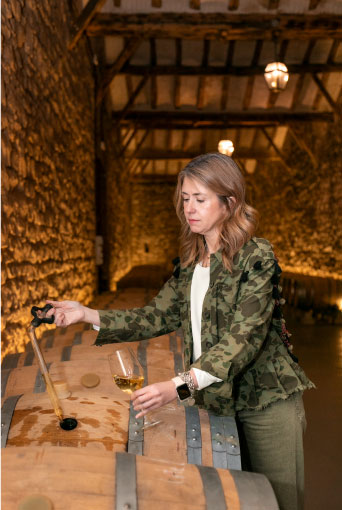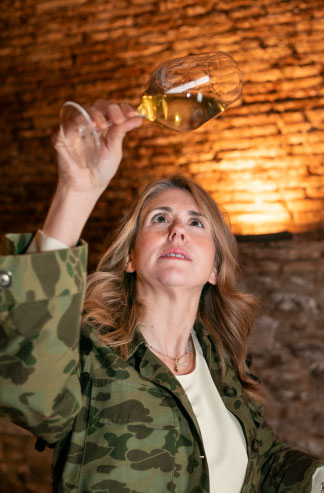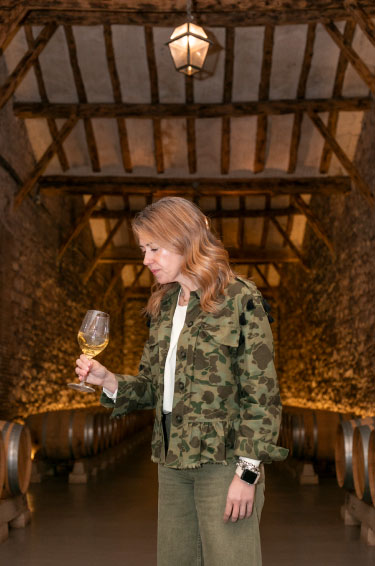-“It is us, human beings, who must do our best in terms of education with the generations that come after us to appreciate nature, care for resources, and teach each other to be efficient in our day-to-day lives”-
“On a personal level, since my studies as an Agricultural Engineer, I have always had a special sensitivity to observing everything that happens in the farms and in the fields, and that is why I am concerned about anything related to water needs and its scarcity, as well as the lack of life in soils heavily treated with pesticides. Seeing ladybugs on peach vine leaves or seeing butterflies flying in the vineyards is a sign of life and good health in the vineyard. It is us, human beings, who must do our best in terms of education with the generations that come after us to appreciate nature, care for resources, and teach each other to be efficient in our day-to-day lives. It is essential to be respectful and to collaborate in daily tasks such as recycling, the use of lighter, more organic materials and less plastics, eating healthily, and valuing fruits and vegetables that ripen on the plant, as well as incorporating all possible renewable energies into our daily lives to contribute one more step towards an awareness of everyday and much-needed sustainability.











